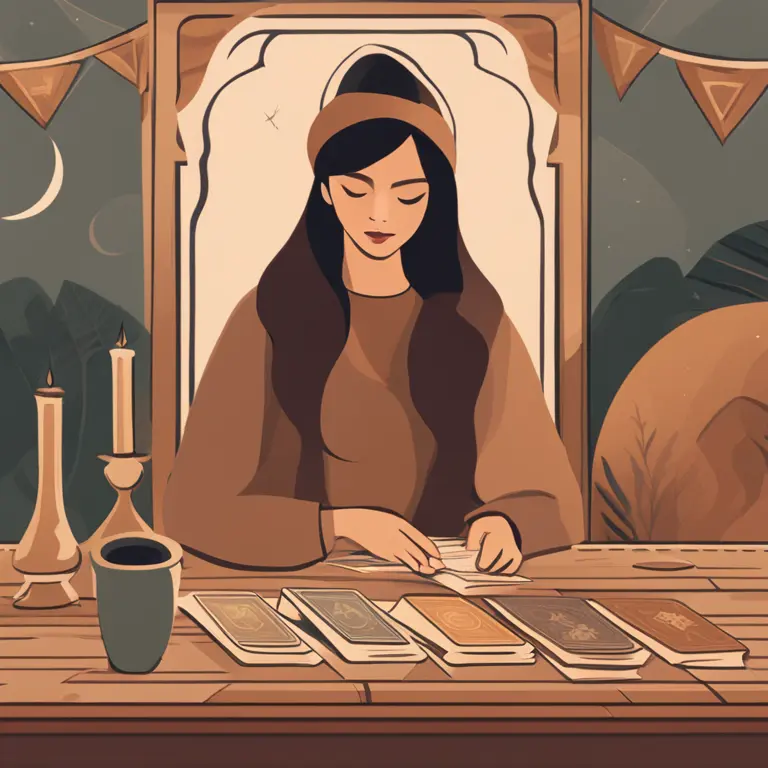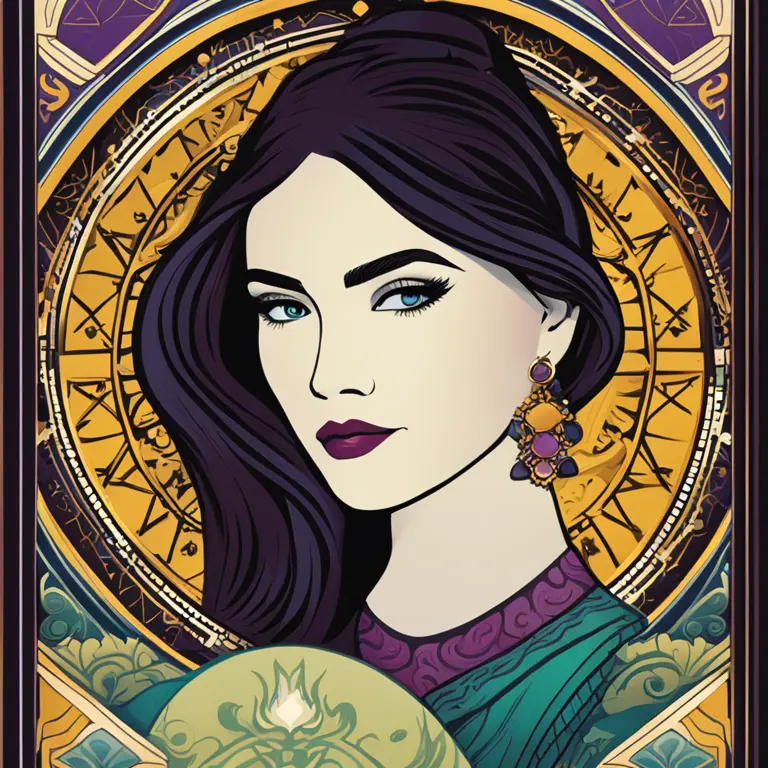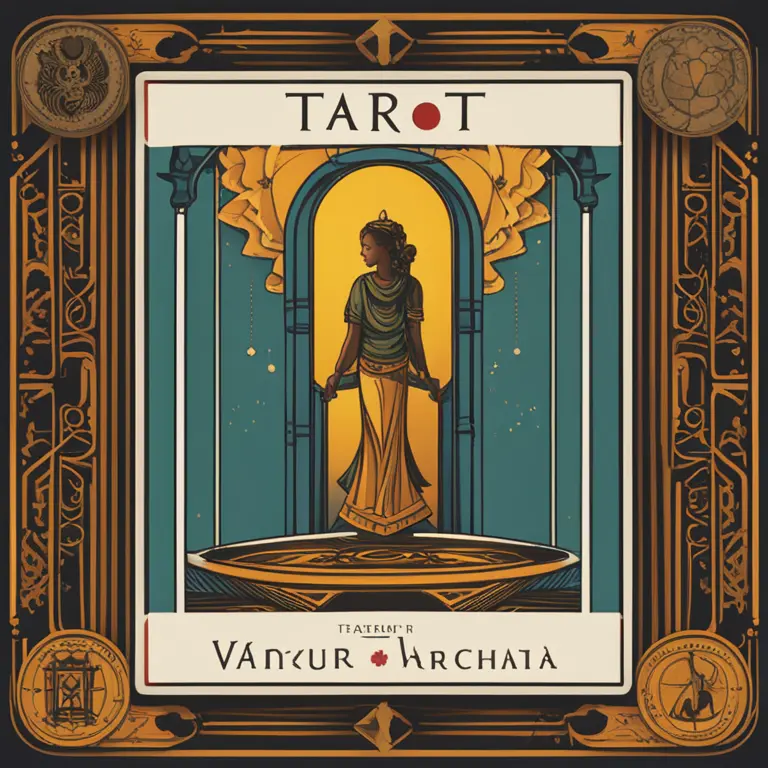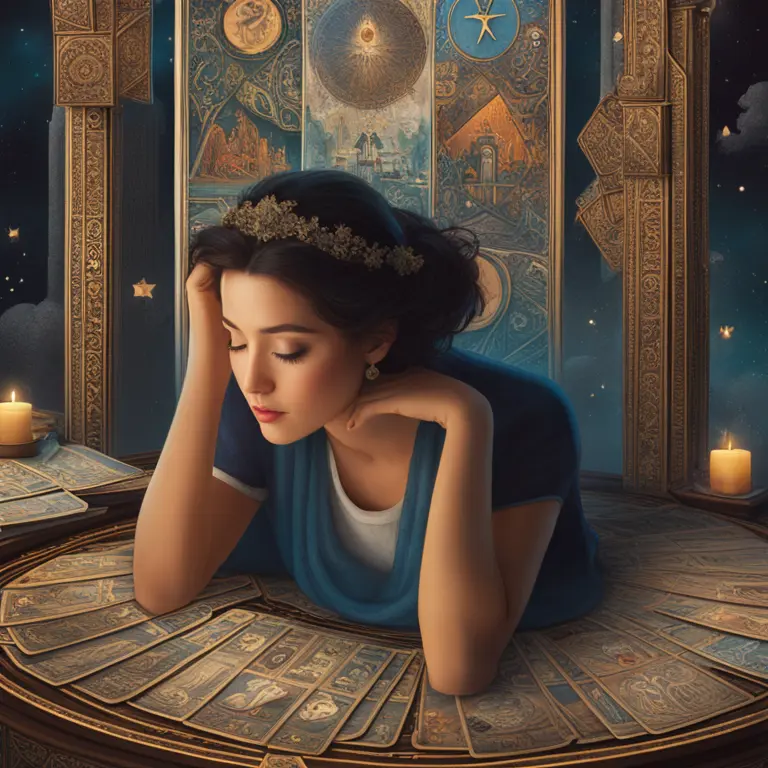
Introduction to Tarotic Decision Guidance
Tarot cards have long captivated the human imagination, promising a glimpse into the unseen and guiding individuals through the mazes of their lives. In our modern world, amidst the ever-increasing complexity of choices, many seek the wisdom of Tarot to illuminate their paths when making decisions. This ancient form of divination, adapted for the digital age, continues to be a profound tool for those standing at life's crossroads, now accessible through countless online platforms and mobile apps. Let's delve into how Tarot can serve as your ally in decision-making.

Understanding Tarot's Framework
Before employing Tarot as a navigator through the uncertainty of choice, it's essential to grasp its structure. The Tarot deck comprises 78 cards, each symbolizing different facets of human experience. The Major Arcana, 22 cards in the deck, represents significant life events and lessons, while the Minor Arcana, consisting of 56 cards, reflects day-to-day happenings. A Tarot reader interprets the cards' positions and relationships to each other, offering insights that may not be immediately apparent, thereby aiding in the decision-making process.

Setting Up Your Question
When it comes to decision-making, the clarity of your question is key. Approach your Tarot session with a focused mind and an open heart. Instead of asking yes-or-no questions, frame your inquiry to offer insights into the consequences of potential choices. For instance, "What might I experience if I choose this path?" This approach allows the Tarot to reveal deeper dimensions of the situation at hand, offering a more nuanced understanding that can inform your decision.

Selecting a Tarot Spread
The layout of cards, known as a Tarot spread, provides a framework for the reading. There are many spreads to choose from, each designed to explore different aspects of a situation. The Three-Card Spread, with its past-present-future orientation, can offer a quick snapshot of the trajectory of your decision. More complex spreads, like the Celtic Cross, examine a broader spectrum of influences surrounding a decision, from hopes and fears to external factors.

Interpreting the Tarot's Wisdom
Interpretation is the art of translating the Tarot's symbols into actionable advice. A card's meaning isn't fixed; it shifts in the context of the question asked and the surrounding cards. For decision-making, look beyond foretelling outcomes to finding patterns and highlighting hidden forces at play. Remember, the Tarot isn't dictating your choice but offering perspectives that may guide your intuition and rational thought.
Making The Decision
After a Tarot reading, it's time to reflect on the insights gained. The Tarot doesn't make decisions for you; rather, it serves as a mirror, reflecting your inner knowledge and fears. It's crucial to couple the Tarot's guidance with your personal judgment and responsibility for the decisions you make. Allow the Tarot to guide your introspection, identify your true desires and uncover any trepidation that may be holding you back from making the best choice.
The Role of Online Tarot in Decision-Making
In 2024, with the surge of digital divination tools, online Tarot readings have brought the archetypal energies of the Tarot into the palm of our hands. These e-readings promise convenience, anonymity, and often a first step into the world of Tarot for newcomers. While some purists argue for the irreplaceable touch and connection of a physical deck, the online experience has democratized Tarot, ensuring that anyone with an internet connection can seek guidance from the cards in their moment of indecision.
Published: 2/8/2024
Modified: 2/8/2024
More predictions
Come back here soon to learn more about yourself and your future


Today's Zodiac Forecast: Cosmic Insights
Delve into your daily zodiac horoscope for fresh celestial guidance and astrological outlook tailored for your star sign.


The Zodiac Constellations: Celestial Insights and Personal Projections
Delve into the world of zodiac constellations and how they provide profound insights into personality traits, life events, and astrological forecasts for 2024 and beyond.